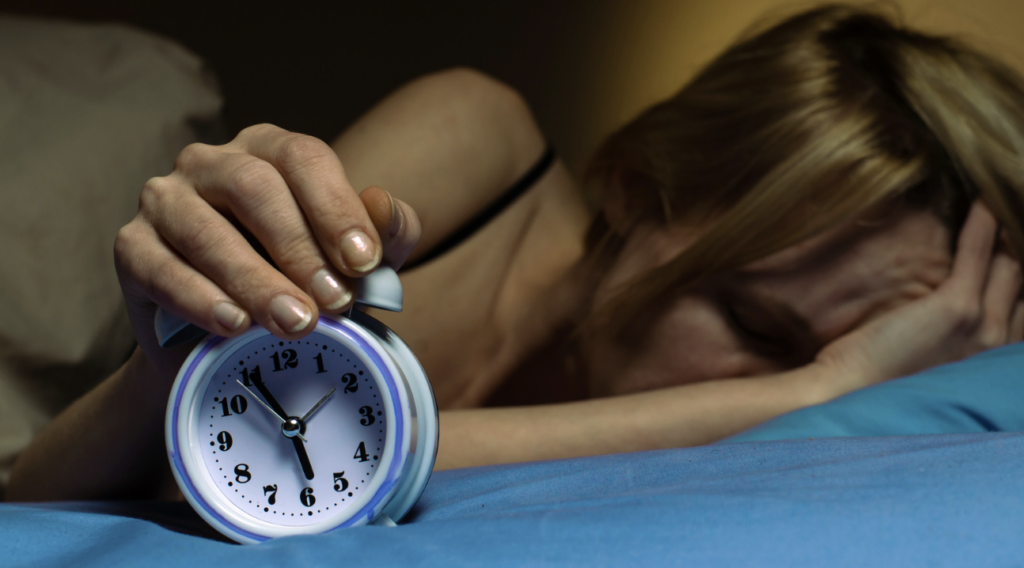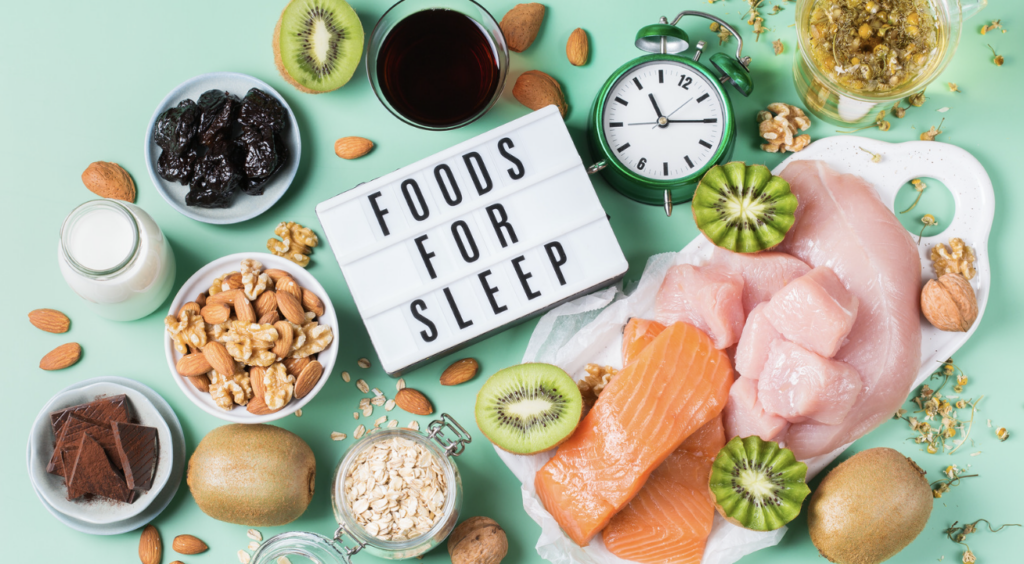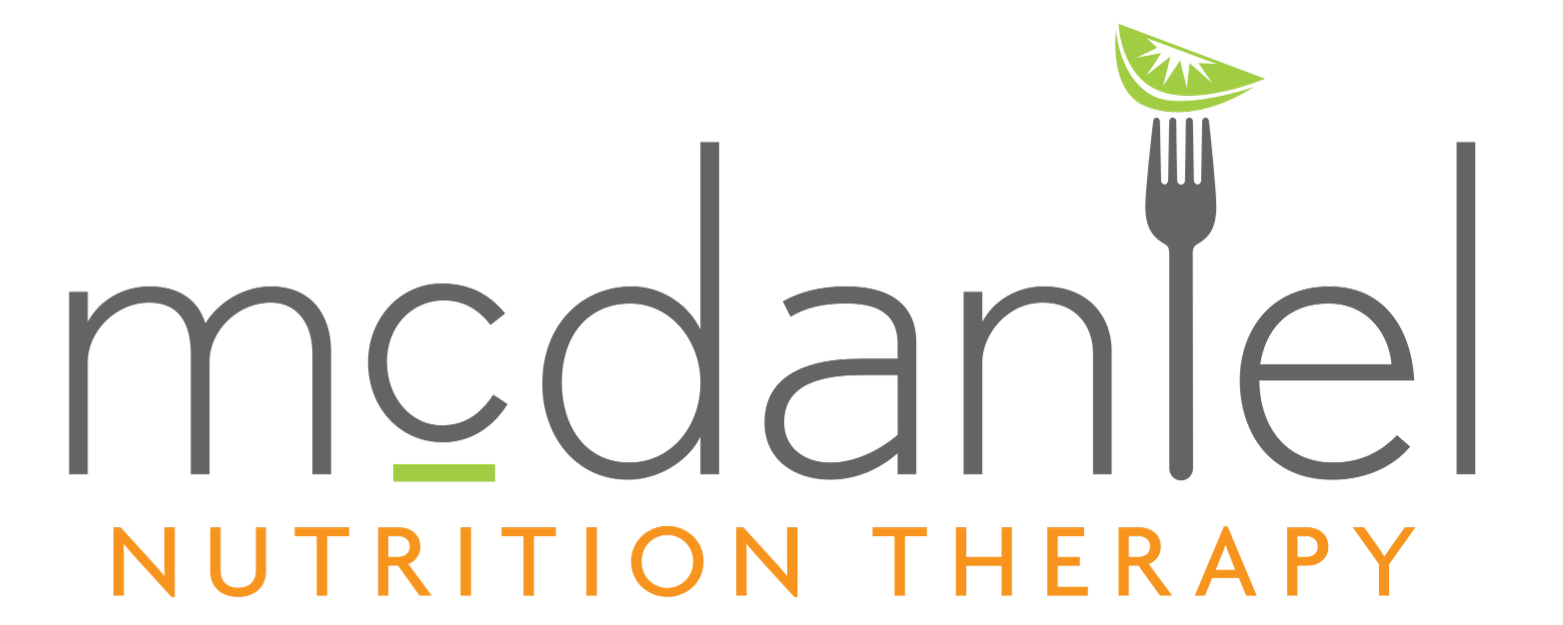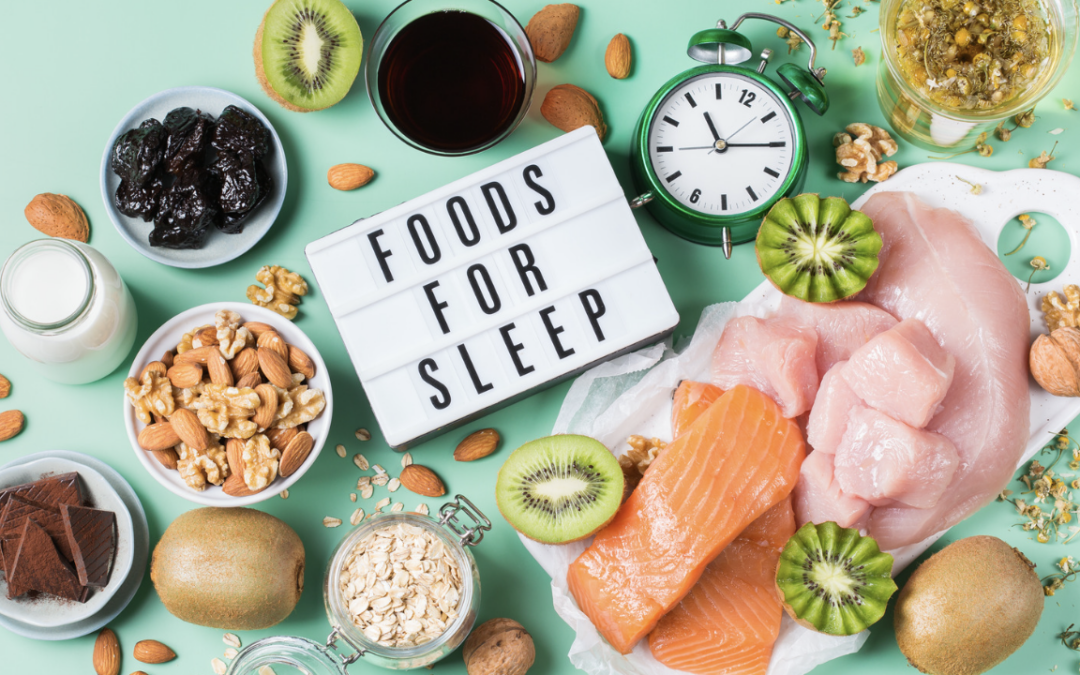“Since I’ve entered menopause, my sleep has become really disrupted. I used to be the best sleeper, but now I find I wake early in the morning or in the middle of the night. And then it’s hard for me to fall back asleep.” Peri/menopause presents many disruptions. When we can’t string a few good nights of rest together, it makes this phase of life even more challenging. If you struggle with sleep, you’re not alone. Forty to fifty-six percent of women complain about sleepless nights. Most of us know that not getting enough sleep impacts our health – for the worse. When we get less than 7 hours of sleep a night, we have an increased risk for problems such as:
- heart disease
- weight gain
- insulin resistance
- hunger hormone dysfunction
- digestive disorders
- fatigue (no sh*t, Sherlock)

Nutrition and Sleep
At McDaniel Nutrition, we talk about sleep. A. LOT. It’s crucial to the goals of very client who walks through our door. Quite often we get the question: “are there foods that can help me sleep? In short, “yes.” The foods and food patterns we eat can support a better night’s rest.
To Eat or Not Eat Before Sleep
If you’ve spent any time on social media, you’ve likely heard advice to “avoid eating 2-3 hours before bed.” Heck, those words have come out of my mouth. The research related to food timing and sleep quality is all over the place. It depends on what the meal is (high carb, high fat, etc), when it was eaten (30 minutes, one hour or 4 hours before bed). Results are mixed!
Also, you are unique. We differ in our bedtimes. Not all of us can eat dinner at 6 pm. True to everything, we must personalize recommendations. That said, large, high-fat meals eaten close to bed can be at odds to restorative sleep (2). Research also shows that high-glycemic meals (think white bread, candy) can lead to disrupted sleep, too (3.) A pre-bedtime snack that is smaller and contains a mix of carbs and fat may help with staying asleep (4). This stabilizing combination of nutrients supports even blood sugar management. Examples would be fruit with nuts or nut butters, yogurt with granola or popcorn with some cheese.
What to do? Try it! Keep a sleep journal. See if a connection between better sleep and your snack occurs. Side note. I recommend letting go of the sleep data you get from watches. It’s amazing how looking outside of ourselves for data can persuade you to “think” you did or didn’t sleep well. Before you check your watch, check in with yourself.
Meal Patterns for Sleep
Our bodies thrive off routines. A 2022 National Sleep Foundation poll found that people who ate meals around the same time every day reported better sleep (5). Erratic meal patterns might not only impact sleep but our energy levels through the day. If your schedule allows, aim to eat around the same time of day.
Foods for Sleep

Nutrients enjoyed during the day associated with a better night’s include:
Melatonin Boosting Foods
Levels of melatonin in women decline during perimenopause and menopause. Supplements are available and are effective for some with better sleep. But, can our foods naturally boost levels? Yes! Certain varieties of grapes and cherries can raise blood levels of this hormone. Tart cherries are the most widely studied food. Studies have tested differing levels (1 oz. versus 1 cup), twice daily, and found improvements (6.) Consider using tart cherry juice as part of a morning smoothie or mixed in with plain kefir milk at night. If you enjoy the juice at night, pair it with a little fat based on what was discussed above.
Serotonin & Tryptophan Foods
Serotonin is our calming, happy hormone that may help us drift off to sleep. Tryptophan is the precursor to serotonin. Foods that support either may help with falling and staying asleep. Tryptophan is an essential amino acid found in animal products, such as beef, lamb, pork, poultry, and dairy. You can also find it nuts and seeds, whole grains, and beans. If your diet is limited in these foods, adding more of these foods into your day may help to raise serotonin levels and therefore, better sleep.
Fatty Fish & Seafood
Both the omega-3’s and vitamin D found in foods like salmon are associated with sounder sleep patterns. Omega-3 fatty acids may help with shorter time to falling asleep, staying asleep and daytime function (7). We recommend 2-3 servings of 4-6 oz of fatty fish per week to reap the benefits of fish fats. Salmon, trout and tuna are examples. For budget-friendly fish fats, go with canned or fish in the vacuumed sealed pouches.
Supplements for Sleep
Common dietary-based supplements often recommended include melatonin, magnesium, and L-Tryptphan. We talk about the role of magnisum-rich foods and which supplements are best for sleep in this POST. While we won’t dive deep into the supplement land in this post, if you’ve tried all the dietary strategies, supplements may help.
Custom Meal Planning
Did you know we can help create a personalized menopause plan specific to your goals, preferences and lifestyle? Let us take the guessing game out of “what should I be eating?” during this confusing, yet beautiful, phase of a woman’s life.

